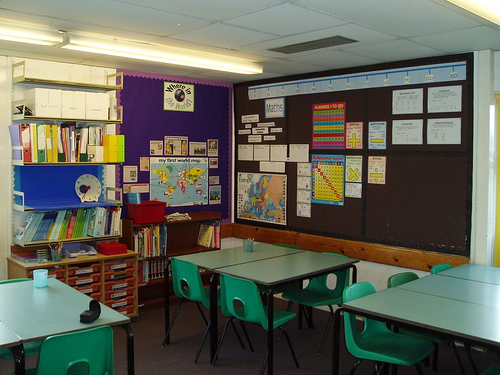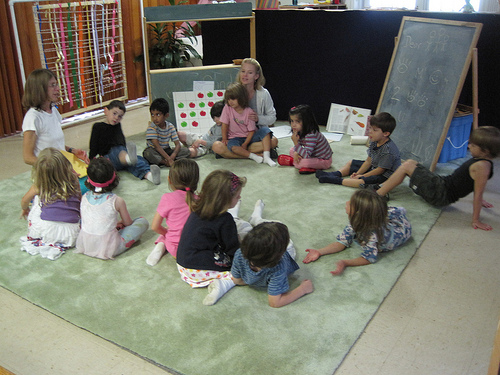 This morning heralded the beginning of a new phase in my life as a special needs parent. We met for the first time with George’s transition planning team to sign the paperwork that kicks off the process of transitioning him to full-time school.
This morning heralded the beginning of a new phase in my life as a special needs parent. We met for the first time with George’s transition planning team to sign the paperwork that kicks off the process of transitioning him to full-time school.
Any parent of a child with autism will tell you the same thing: that the word “transition” is one of the scariest words in the English language.
“Transition” means that the routines that pretty much hold the world together for a child with autism are about to be turned upside down and inside out.
“Transition” means that there are likely to be meltdowns, that for a period of time my child’s anxiety will be mirrored in his eyes in a way that will make me want to weep, and that the entire family will be without sleep as George makes the adjustment to his new reality.
Despite the fact that this is a process that makes me fraught with anxiety, it is a positive thing. When he started IBI therapy two and a half years ago, George did not have a lot of skills. He had virtually no vocabulary, no self-help skills, he couldn’t follow directions, he couldn’t interact, his emotional regulation skills were nowhere, and he had all kinds of fears that made his life very difficult. There was always a spark in him, though; a light in his eyes that made people sit up and take notice.
After two years of full-time therapy, the progress in this child was off the charts. It would be a stretch to describe him as fully verbal, but he was making requests using full sentences, he was starting to interact in a limited way, he was no longer afraid of the dark, he was starting to verbally express emotion, he was able to follow instructions with multiple steps, and in a giant cognitive leap, he had started to display his quirky sense of humour (deliberately being funny for the purpose of making other people laugh is huge. HUGE!)
And so, six months ago, the decision was made to cut his therapy in half and graduate him to the next program up. Instead of traditional IBI therapy, which is intensive one-on-one programming, he is now in a School Stream program, which is conducted in groups of five. It is a simulated classroom environment, designed to help children with autism learn the kinds of skills needed in school. There is teacher who leads school-type activities, and each child has his or her individual support person to help with prompting and reinforcing. The children in this program attend School Stream for half of the day, and actual school for the other half.
It has proven to be a very effective program for George. It has helped improve his social communication and interaction skills – areas that remain difficult for him, that traditional IBI therapy is not designed to address.
And now, effective from September of this year, George is being deemed fit for full-time school. This is a testament to the progress he has made, both in IBI and in School Stream. His teacher at school, who has had him half-days for the last six months, is excited to take him on full-time, and he will be with her for at least two years. At our last meeting with her, she had glowing things to say about George. He still struggles intensely with social communication, and he is not nearly verbal enough to hold his own in a conversation, but academically he is flying. He has developed the skills to function, and function reasonably well, in a classroom setting, even if it is a modified classroom designed for children like George.
That George is ready for this transition is a positive thing indeed. It is something that makes me so proud of him. He has had to work so incredibly hard to get to this point.
But still.
The process of transition is not going to be easy, which is why the planning starts six months before the transition takes place, and does not end until six months after the transition has happened. This morning’s meeting with the transition planning team was the first of what will be many. From what we’ve been able to tell, there will be good supports in place for George and for us over the next year, in order to ensure as smooth a transition as possible.
I cannot help being anxious about it, though. George’s departure from the therapy centre will mean the removal of a layer of support that we have had for the last three years, and although George might be ready for it, I don’t know if I am.
I might just have a harder time with this transition than George will…
(Photo credit: http://www.flickr.com/photos/misskprimary/1038145678)










